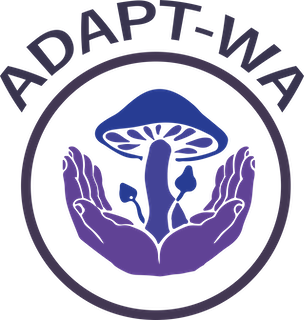Psilocybin, a naturally occurring compound in over 200 species of mushrooms—including more than 20 native to Washington and the Pacific Northwest—has garnered significant attention for its therapeutic potential. Modern research underscores its safety, revealing that psilocybin is non-toxic, non-addictive, and stimulates key serotonin receptors in its metabolite form psilocin. Since the body metabolizes psilocybin naturally, there are few side effects. As interest grows, psilocybin is being increasingly recognized for its potential to address health challenges like depression, anxiety, Post Traumatic Stress Disorder (PTSD), cluster headaches, pain, addiction and others.
Addiction, depression, and anxiety stem from various factors, but they often share a common root: feelings of disconnection and despair. Depression reflects a sense of loss and hopelessness about the past, anxiety is driven by fear of the future, and addiction can be a way of self-medicating to cope with both.
These feelings of disconnection and despair can lead to excessive self-rumination, negative self-talk, and obsessive behaviors that are difficult to break. Psilocybin has been shown to reduce activity in the brain regions responsible for these harmful patterns, offering a potential breakthrough in mental health treatment.
Rigorous studies at top medical research institutions, including Johns Hopkins, UCLA, and NYU, have demonstrated that psilocybin therapy holds real promise. It has shown particular effectiveness in treating depression, end-of-life anxiety, and addiction. In one NYU study, psilocybin therapy significantly reduced depression and anxiety in 80% of cancer patients, with minimal side effects. As more research emerges, medical psilocybin is increasingly seen as a likely candidate for FDA approval in the near future.
While psilocybin-assisted counseling is not yet widely available outside of clinical trials, this may soon change as states across the country consider legalizing its medical use. Pioneering research by institutions like Johns Hopkins and UCLA indicates that psilocybin therapy, when administered by trained professionals, can help individuals overcome a range of mental health challenges. ADAPT's Psilocybin Services Act for Washington would establish a program enabling access to psilocybin-assisted counseling for treating depression, anxiety, and addiction—potentially benefiting thousands, even without a specific diagnosis.
Addiction, depression, and anxiety stem from various factors, but they often share a common root: feelings of disconnection and despair. Depression reflects a sense of loss and hopelessness about the past, anxiety is driven by fear of the future, and addiction can be a way of self-medicating to cope with both.
These feelings of disconnection and despair can lead to excessive self-rumination, negative self-talk, and obsessive behaviors that are difficult to break. Psilocybin has been shown to reduce activity in the brain regions responsible for these harmful patterns, offering a potential breakthrough in mental health treatment.
Rigorous studies at top medical research institutions, including Johns Hopkins, UCLA, and NYU, have demonstrated that psilocybin therapy holds real promise. It has shown particular effectiveness in treating depression, end-of-life anxiety, and addiction. In one NYU study, psilocybin therapy significantly reduced depression and anxiety in 80% of cancer patients, with minimal side effects. As more research emerges, medical psilocybin is increasingly seen as a likely candidate for FDA approval in the near future.
While psilocybin-assisted counseling is not yet widely available outside of clinical trials, this may soon change as states across the country consider legalizing its medical use. Pioneering research by institutions like Johns Hopkins and UCLA indicates that psilocybin therapy, when administered by trained professionals, can help individuals overcome a range of mental health challenges. ADAPT's Psilocybin Services Act for Washington would establish a program enabling access to psilocybin-assisted counseling for treating depression, anxiety, and addiction—potentially benefiting thousands, even without a specific diagnosis.
The Psilocybin Services Act for Washington seeks to establish a therapeutic model similar to the groundbreaking Oregon Psilocybin Therapy Act, passed in November 2021. This act aims to make psilocybin-assisted counseling available to those in need, offering a structured approach to mental health treatment.
Psilocybin-assisted counseling typically involves three key stages:
Initial Interview and Counseling Session: This first step is designed to identify the participant’s intentions for seeking psilocybin therapy, ensure medical eligibility, and prepare the individual for the psilocybin experience. It's an essential part of ensuring both safety and the effectiveness of the treatment.
Supervised Psilocybin Session: The core of the therapy involves a supervised session in a safe and comfortable environment, where the participant takes psilocybin under the guidance of trained professionals. This setting is carefully controlled to support the therapeutic process.
Follow-Up Integration Session: After the psilocybin experience, a follow-up session is conducted to help the participant process and integrate what they’ve experienced into their daily life. This stage is crucial for translating the insights gained during the session into lasting, positive change.
The implementation of the Psilocybin Services Act for Washington will prioritize equitable access, safety, and flexibility to address the diverse needs of participants. This act represents a vital step towards making psilocybin-assisted counseling a viable and accessible option for those struggling with mental health challenges in Washington State.
